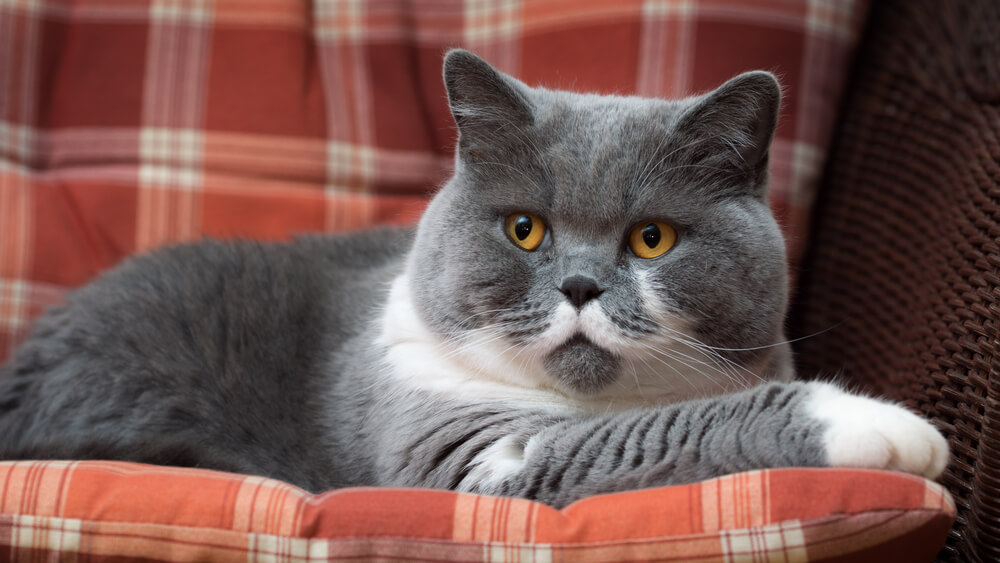
Breeds such as pugs and French bulldogs are popular because many people can’t resist their cute, smushed faces, but brachycephalic pets can experience significant health issues because of their unique characteristics. Our team at Towne Centre Animal Hospital wants to help by answering frequently asked questions about brachycephalic breeds, in case your pet is affected.
Question: What is a brachycephalic pet?
Answer: The term brachycephalic originates from the Greek words for “short” and “head.” These breeds can be identified by their characteristic shortened snouts and flattened faces, which have made them increasingly popular in the United States. Brachycephalic breeds include:
- Dogs — The American Kennel Club (AKC) lists the following breeds as brachycephalic: Affenpinscher, boxer, bulldog, Brussels griffon, Bullmastiff, Boston terrier, Cavalier King Charles spaniel, Cane Corso, chow chow, Dogue de Bordeaux, English toy spaniel, French bulldog, Japanese chin, Lhasa apso, Pekingnese, pug, and shih tzu.
- Cats — Brachycephalic cat breeds include Persian, Himalayan, Burmese, British shorthair, and exotic shorthair.
Q: What health issues do brachycephalic pets face?
A: Brachycephalic pets face many health issues, but brachycephalic obstructive airway syndrome (BOAS), which impedes their ability to breathe normally, is the most concerning. Affected pets can have one or more of the following abnormalities:
- Stenotic nares — The pet’s narrowed nostrils inhibit air flow.
- Elongated soft palate — The tissue on the roof of the pet’s mouth can be too long for their mouth, partially blocking the trachea, and causing a thickened soft palate in some cases.
- Everted laryngeal saccules — Their stenotic nares and elongated soft palate cause brachycephalic pets to exert more effort during respiration, which can turn small pouches inside the larynx outward, obstructing air flow.
- Narrowed trachea — Some brachycephalic pets have a narrowed trachea.
- Laryngeal collapse — The chronic stress placed on the laryngeal cartilages can stop them opening normally, further restricting air flow.
- Elongated nasal turbinates — Turbinates are bony protuberances that help warm and humidify inhaled air and can extend past the nose and obstruct the airway.
Q: What signs indicate brachycephalic obstructive airway syndrome in pets?
A: BOAS signs include difficulty breathing, noisy breathing, exercise intolerance, regurgitation, and vomiting, and can be more pronounced in warm or humid environments. Brachycephalic breeds are at higher risk for heat exhaustion, because they can’t self regulate their body temperature. In addition, obesity significantly exacerbates their problems.
Q: How is brachycephalic obstructive airway syndrome diagnosed in pets?
A: Some BOAS aspects are evident from simple examination of a pet’s nose, but other diagnostic measures are necessary to assess the pet’s laryngeal region. Diagnostic tests include an oro-pharngeal examination under general anesthesia, posterior rhinoscopy (i.e., using a thin, tube-like instrument to examine the nasal passages), and computed tomography (CT) head scan.
Q: How is brachycephalic obstructive airway syndrome treated in pets?
A: Conservative management can help mildly affected pets, but more aggressive treatments may be necessary. Treatment approaches include:
- Weight management — A weight loss program will be devised to help overweight pets safely lose their weight.
- Environmental factors — Environmental factors, including restricting physical activity, limiting stress, and avoiding hot, humid conditions, can help manage BOAS.
- Medical treatment — Oxygen therapy, nonsteroidal anti-inflammatories, and corticosteroids are helpful to manage airway inflammation and respiratory distress short-term.
- Surgical intervention — When a pet’s breathing is impaired, surgery to widen the nostrils, shorten the soft palate, and remove the everted laryngeal saccules will be recommended to improve airflow.
Q: What other problems affect brachycephalic pets?
A: Brachycephalic pets are predisposed to many other conditions, includings:
- Eye problems — Many brachycephalic pets have large, protruding eyes that inhibit their ability to fully close their eyelids, causing corneal inflammation and potentially ulceration.
- Persistent eye discharge — The abnormal face shape can disrupt the tear ducts, causing eyes to tear constantly.
- Spinal malformations — Some brachycephalic pets, such as the pug and Boston terrier, have a spinal malformation that causes their tail to curl. These pets frequently have other spinal malformations that can cause back pain, difficulty moving, and urinary or fecal incontinence.
- Dental disease — Brachycephalic pets’ small mouths overcrowd their teeth, predisposing them to periodontal disease.
- Skin disease — Skin folds, which are common around a brachycephalic pet’s face and tail, create a warm, moist environment where fungi and bacteria can thrive, leading to severe, difficult to manage skin infections. Surgically removing the skin folds is necessary in some cases.
- Ear infections — Brachycephalic pets tend to have narrowed ear canals, predisposing them to ear infections.
Q: How can problems with brachycephalic pets be prevented?

A: Health conditions that affect brachycephalic pets significantly decrease their quality of life and place an emotional and financial burden on their owners. Ways to prevent these issues include:
- Pre-purchase examination — If you are considering purchasing or adopting a brachycephalic pet, our veterinary professionals will perform a pre-purchase examination to ensure the pet has no significant health issues.
- Keeping your pet at an ideal weight — Excess weight exacerbates their health issues, so keeping your brachycephalic pet at a healthy weight will help prevent problems.
- Ensuring affected pets aren’t bred — Brachycephalic pets whose conformation causes significant health conditions should not be bred. Spay and neuter procedures are often performed at the same time as corrective surgeries.
Brachycephalic pets are cute, but they can face expensive, life-long health issues. If your brachycephalic pet is experiencing difficulties associated with their unique characteristics, contact our team at Towne Centre Animal Hospital, and we will determine the best way to address their problem.
